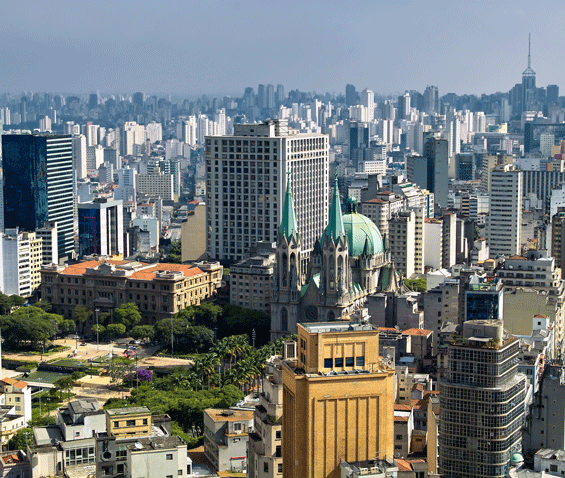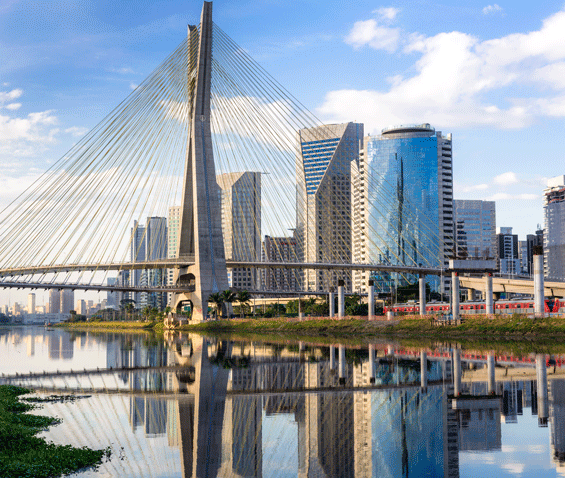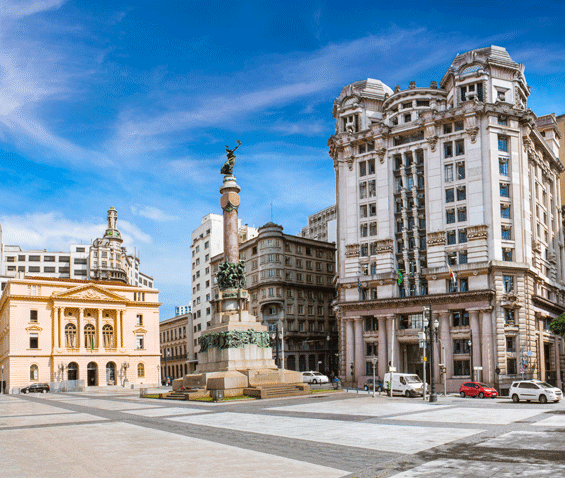December 8, 2023
A Strong Team with a Passion for Automation … and Soccer
South America is not only a continent rich in contrasts with many cultural and scenic attractions, but also offers great economic potential. In order to strengthen its sales channels in South America and build strong partnerships for the future, Pepperl+Fuchs organized the first South American Sales Convention in Brazil.
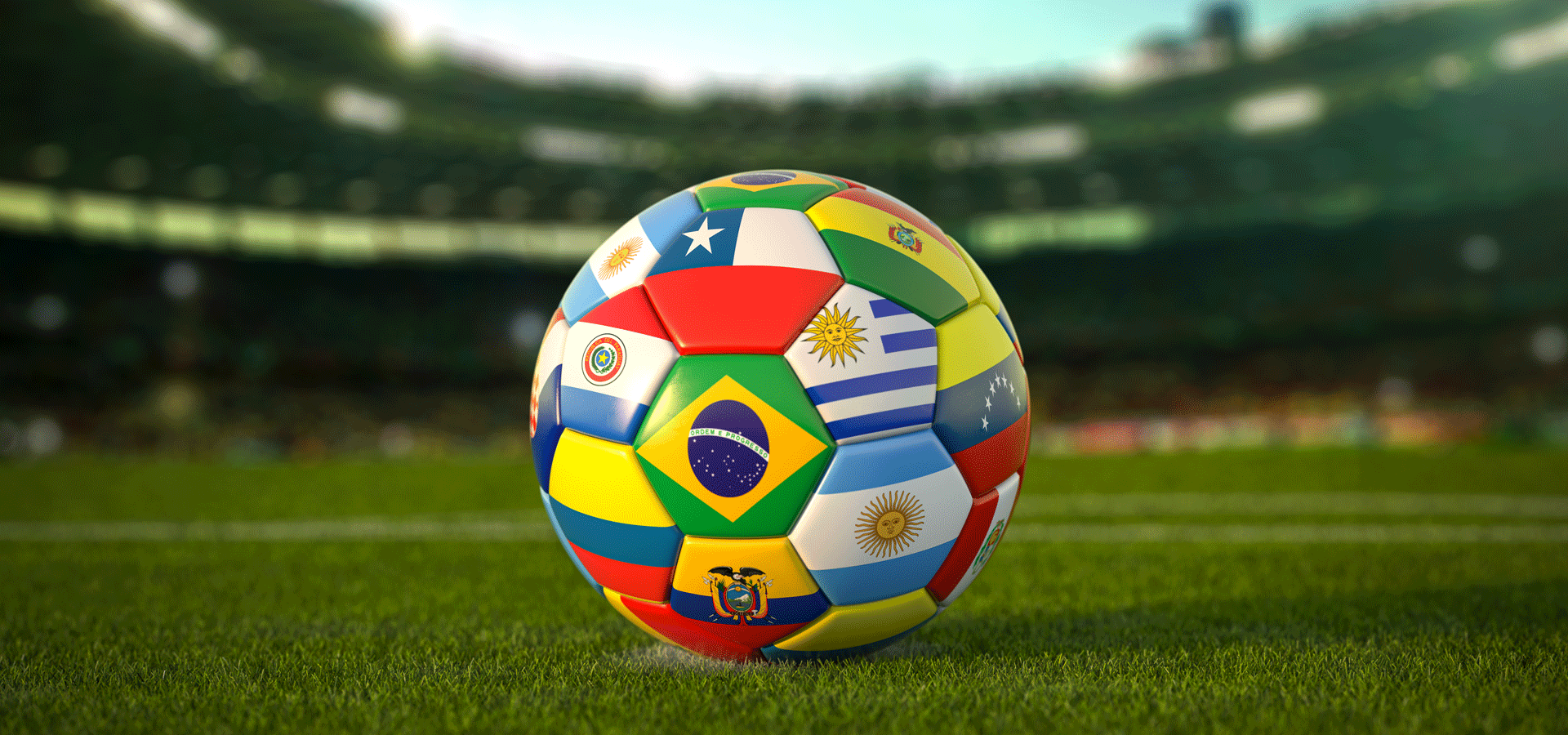
South America attracts millions of visitors from all over the world every year with its beautiful coastlines, historic Inca sites, and breathtaking landscapes such as the Amazon rainforest, the Andes, the thundering Iguazú Falls between Brazil and Argentina, the Atacama Desert in Chile, and the natural wonders of Patagonia. But the continent also has a lot to offer economically. Its wealth of natural resources such as copper, iron ore, nickel, and lithium, which are of great importance for the development of future technologies in the energy sector and electromobility, make South America an important trading partner worldwide. Brazil is the largest agricultural exporter, followed by Argentina and Chile. Agriculture is becoming ever more efficient, with smart farming solutions playing an increasingly important role. A broad-based industry, which has settled primarily in the metropolitan areas of large cities, and investments in the field of renewable energies, such as the production of green hydrogen, ensure additional economic growth.
São Paulo—the City of Superlatives
São Bernardo do Campo, the headquarters of Pepperl+Fuchs in Brazil, is located on the outskirts of São Paulo and is one of the major industrial centers around the megacity. With more than 12 million inhabitants, São Paulo is not only the largest city of Brazil, but also in South America. In addition, the metropolitan area has a total of more than 22 million inhabitants, making São Paulo the fourth largest city in the world after Tokyo, Delhi, and Shanghai. It is nowhere near as famous as Rio de Janeiro with its beaches and the Corcovado, but the metropolis located between the Atlantic coast and the Atlantic rainforest “Mata Atlântica” is full of culture, contrasts, and culinary delights.
The metropolitan area of São Paulo is the economic and financial heart of Brazil and the largest industrial conurbation in South and Latin America. Industries include the automotive industry, pharmaceuticals, agriculture, aerospace, and the energy sector. The city of superlatives is also home to the largest numbers of multinational company headquarters after New York and, with its industrial centers in the metropolitan region, is home to most German companies outside Germany. Around a third of Brazil’s industrial and services companies are based in the state of São Paulo.
Networking as the Key to Success
Pepperl+Fuchs recognized the potential of the region early on and founded the Brazilian subsidiary Pepperl+Fuchs Ltda. in São Bernardo do Campo in 1990 to enter the South American market. With the increasing importance of the South and Latin American markets, a subsidiary in Mexico City was founded in 1994 and later sales offices in Argentina and Colombia followed. Today, Pepperl+Fuchs sells its sensor and automation technology to OEMs, system integrators, and end customers in cooperation with 55 distributors who support the company´s own sales force on the South American continent.
To strengthen its business and sales activities, Pepperl+Fuchs Brazil hosted the first South American Sales Convention in Rio de Janeiro under the motto “Somos uno”, Spanish for “We are one”. Pepperl+Fuchs sales teams and technical specialists from Colombia, Argentina, and Brazil as well as distributors from several South American countries attended to talk about industry and market trends such as Industry 4.0, smart sensor applications, and industrial communication. The aim of the convention was to strengthen existing agreements and sign new ones, introduce state-of-the-art technology through technical training, and identify new market opportunities.
We spoke to Dênis Leonardo, Regional Sales Director Factory Automation in South America, and Fabio Fabri, Marketing Coordinator at Pepperl+Fuchs Brazil, to gain an insight into the South American market and the importance of distributors in the region.
Dênis LeonardoHistorically, our Brazilian sales team and the Brazilian market were not part of the Spanish-speaking Central and South American sales regions that we serve. In 2021, Pepperl+Fuchs decided to merge the entire South American sales region into one—now with Brazil as a key player to combine strengths and regional market experience. The aim was to create a spirit of unity and togetherness. We wanted to express that we can always support each other, learn from each other, and grow.
Fabio FabriThat´s why we chose the motto “We Are One”, which means that despite different backgrounds, new team members, different cultures and even languages, there are also many similarities, but our differences make us stronger. We also wanted to celebrate the good results achieved in recent years and welcome the new distributors who are joining our sales and distribution channel.
Dênis LeonardoI would say that the main difference is the language. However, it is very common to find a Spanish speaker in Brazil and/or Portuguese speaker across the Spanish-speaking countries in the region. There is a big “difference” in soccer opinion, whether it´s Pele or Maradona, Neymar or Messi (laughs). In the business environment, there are a large number of market similarities, e.g., in the mining, sugar/ethanol/biodiesel, automotive, renewable energy, food processing, or mobile and agriculture equipment sectors. The daily business practices are also very similar, e.g., the way we communicate, the methods, tools, and social media channels we use, but also in terms of technologies.
Fabio FabriThere are actually a lot of similarities in the region in terms of connecting with people on a personal level. It is not uncommon for us to know the name of the customer´s children, the birthday, or the favorite soccer team. The warm way in which we treat the customer´s technical pain as our own, being able to tackle and address the problems, makes us feel comfortable to work together without losing sight of the professional aspects. With regard to the language, Portuguese and Spanish have more similarities than differences. The differences are what make us unique, but together we are stronger, we are one region, and one team with the same goal.
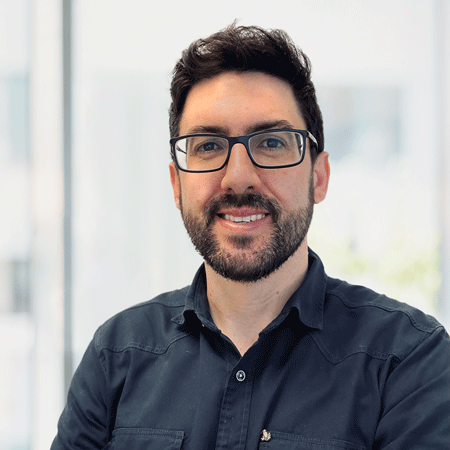
Dênis LeonardoDistributors as a sales channel are very important for the region and the success of Pepperl+Fuchs, as they account for 35% of total sales in South America. Distributors are also a way for us to support customers where we are not able to be on site with our own team when it comes to services and technical support. We are strengthening our competitiveness by shortening our time to market and intensifying our international sales activities. We are committed to working together to deliver excellence to our customers. Our close cooperation in the continuous market support of our proven products and the successful introduction of innovations are the key drivers of our business growth. Together we will adapt and shape the sales strategy. Results-oriented, cross-functional, and empowered teams will allow us to quickly develop the best possible solution to our challenges.
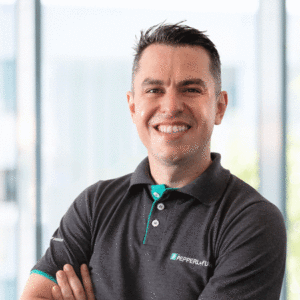
Fabio FabriNew agreements are important for Pepperl+Fuchs in order to reach an area where we are not represented by our own branches; here the distributor can represent our brand in this specific region. In addition, with a long-term committed partner, it is possible to plan, request, and coordinate sales and delivery dates regularly and sustainably, and to defend ourselves against local competition.
Dênis LeonardoDistributors are also the best way to serve end users. Since our team is heavily focused on the OEM business, there are thousands of customers we can reach through distributor partnerships. The most important thing in an agreement is to develop appropriate terms and conditions for each location and improve the commitment of both parties to be successful.
Dênis LeonardoTraining and skills are an additional and ongoing part of the partnership because we understand that it is crucial to train the technical team in new technologies and products so that they are always up to date when it comes to new trends, such as smart sensors and cloud connectivity. As Pepperl+Fuchs, we not only offer on-site trainings, but also a whole package of online content such as videos, training courses, and presentations. Constant evaluation also helps us to continuously improve the quality of our training courses. During the sales convention, we spent a whole day training the distributor´s product managers and informing their commercial managers about our sales team´s new guidelines and strategies.
Fabio FabriWe are focusing our efforts on the target industries of mining, automotive, agriculture, process equipment, material handling, and clean energy. We also have a significant share of OEMs and system integrators as key customers in the region, with a growing presence among end users.
Dênis LeonardoMining is a large market in the region, with a revenue of 61 billion euros in 2021, with 229 mining areas processing 10 thousand tons per year. Total mining exports from South America to the US, Canada, and China amount to USD 48 billion in 2021, representing a growth of 21.5% compared to 2020 (Source: IBRAM, Brazilian Mining Association). We can definitely multiply our success in Brazilian mining with the big mining countries like Chile and Peru. In addition, lithium projects are booming due the increasing number of electric vehicles and battery manufactures. About one third of worldwide production is located in South America, mainly in Chile and Argentina. Other important markets are mobile equipment, intralogistics, meat processing, and renewable energies. There are several OEMs and projects in the region that could have an exponential impact on our business.

Dênis LeonardoAs sales team, our main challenge is to keep the focus on what we can achieve and to have the ability to adapt to changing conditions in time to gain market share. With the help of distributors and also investment in new business and sales staff, we can become stronger and overcome our challenges. We will continue to build trust with our distributors and grow the Pepperl+Fuchs business across the entire region.
Fabio FabriThey are no longer buzzwords. Customers in the region are actually investing in Industry 4.0 technologies to become more competitive in their industry by upgrading their machines and processes with technological solutions such as smart sensors, IoT-enabled gateways, and data visualization capabilities. Automation is also a way to reduce human risk in their operations. During the sales convention, we also presented Manufacturing-X and Industry 4.0 trends. The aim is to inspire and motivate customers to take advantage of smart sensors and industrial communication in production plants by showing that Pepperl+Fuchs is one of the key players in this field. However, according to a KPMG study, there are some challenges to overcome for large customers with high investment sums, such as updating major operational requirements and security risks when linking old devices with new ones, which may not be retrofittable. On the positive side, we are seeing more and more people being trained in the market and educational institutions are incorporating Industry 4.0 disciplines into their programs that enable positive cultural change combined with ESG goals—a hot topic on every executive board´s agenda.

Dênis LeonardoWith the great support of our headquarters in Germany and the US, we have tripled our sales in the last nine years. And there is more to come! Our goal for the next five years is to play an important role in the company´s global sales strategy and to double our sales. We have a great team and fantastic legacy and new products that will definitely take us to a higher level in the near future.
Dênis LeonardoThe highlight was definitely the positive feedback we received from our distributors and employees during and after the convention. It showed us that the event was a great success and strengthened our partnerships, team spirit, and our shared passion for automation technology. We were also able to spread our intention that Pepperl+Fuchs products, systems, and solutions make value creation more efficient, safer, cleaner, quieter, more convenient, more transparent, more scalable, higher quality and therefore more competitive, in addition to being an undeniable lever for achieving global climate goals by helping our customers to increase energy efficiency.
Fabio FabriOne of the best moments for me was the visit to the Christ the Redeemer monument on the Corcovado. The visit brought a great sense of togetherness and a relaxing moment to see the city of Rio de Janeiro from a privileged vantage point at sunset. We chose Rio de Janeiro as the venue because it is an international and diverse city where people with different cultural backgrounds come together—exactly the spirit we wanted to convey to the convention participants.


